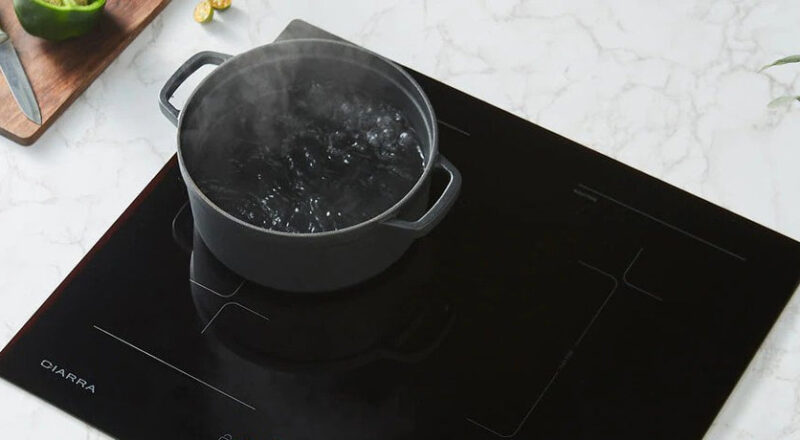Induction cooking has become a popular choice for many homes due to its efficiency and precision. But, what makes it even better is using cast iron cookware. The benefits of cast iron for home induction cooking are numerous, making it a preferred choice for both amateur cooks and professional chefs. In this article, we will explore why cast iron is an excellent choice for induction cooking.

What is Induction Cooking?
Induction cooking uses electromagnetic energy to heat pots and pans directly. Unlike traditional cooking methods, it does not use flames or heating elements. Instead, the heat is generated in the cookware itself, making it faster and more efficient.
How Does Cast Iron Work with Induction?
For induction cooking to work, the cookware must be magnetic. This is where cast iron shines. It is naturally magnetic, which means it heats up quickly and evenly on an induction cooktop.
Durability of Cast Iron
One of the key benefits of cast iron for home induction cooking is its durability. Cast iron cookware is incredibly tough and can last for generations if properly cared for. This makes it a great investment for any kitchen.
Retains Heat Well
Another advantage of cast iron is its ability to retain heat. Once it is heated, it stays hot for a long time. This is perfect for dishes that require slow cooking or simmering.
Even Heat Distribution
Cast iron is known for its ability to distribute heat evenly. This means no more hot spots, which are common in other types of cookware. It ensures that your food is cooked uniformly.
Versatility in Cooking
With cast iron cookware, you can go from stovetop to oven seamlessly. It can handle high temperatures, making it versatile for various cooking techniques. Whether you are searing, frying, or baking, cast iron can do it all.
Natural Non-Stick Properties
When properly seasoned, cast iron develops a natural non-stick surface. This makes it easier to cook and clean without the need for additional non-stick coatings that might wear off over time.
Seasoning Your Cast Iron
Seasoning is crucial for maintaining your cast iron cookware. It involves applying a thin layer of oil and heating it, creating a protective layer. For a detailed guide on seasoning, you can visit seasoning video.
Health Benefits
Cooking with cast iron can also have health benefits. Small amounts of iron can leach into your food, which can be beneficial for those with iron deficiencies.
Safe to Use
Cast iron is free from harmful chemicals found in some non-stick cookware. This makes it a safer choice for your family.
Environmentally Friendly
Because of its durability, cast iron cookware reduces the need for frequent replacements. It is also recyclable, making it a more sustainable option for the environment.
Cost-Effective
Initially, cast iron may seem more expensive than other cookware. However, its longevity and versatility make it a cost-effective choice in the long run.
Common Misconceptions
Some people believe that cast iron is difficult to maintain. However, with proper care, it is one of the easiest types of cookware to keep in top condition. For more on how to care for cast iron, check out this guide.
Myths Debunked
There are also myths about cast iron not being suitable for induction. This is false, as cast iron is one of the best materials for induction cooking. To learn more, visit this article.
Conclusion
The benefits of cast iron for home induction cooking are clear. It offers excellent heat retention, durability, and versatility, making it a valuable addition to any kitchen. Whether you’re a seasoned chef or a home cook, cast iron can elevate your cooking experience.

FAQs
Is cast iron suitable for all types of induction cooktops?
Yes, cast iron works well with all types of induction cooktops as long as the cookware is flat and magnetic.
How do I clean my cast iron after using it on an induction cooktop?
Cleaning cast iron is simple. After cooking, let it cool, then wash it with warm water and a soft sponge. Avoid using harsh detergents. For more tips, visit this cleaning guide.
What should I do if my cast iron has cold spots?
If you experience cold spots, it may be due to uneven seasoning. Re-season your cookware to ensure even heat distribution. More details can be found here.
This article contains affiliate links. We may earn a commission at no extra cost to you.

